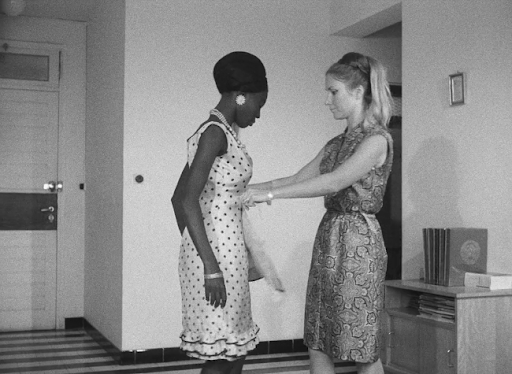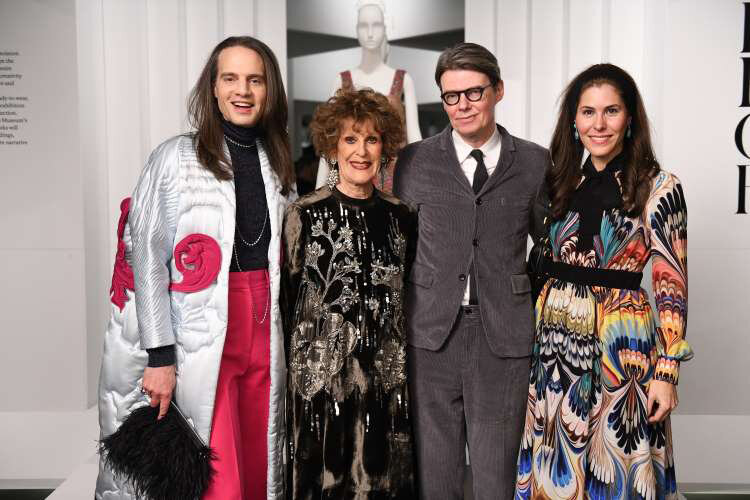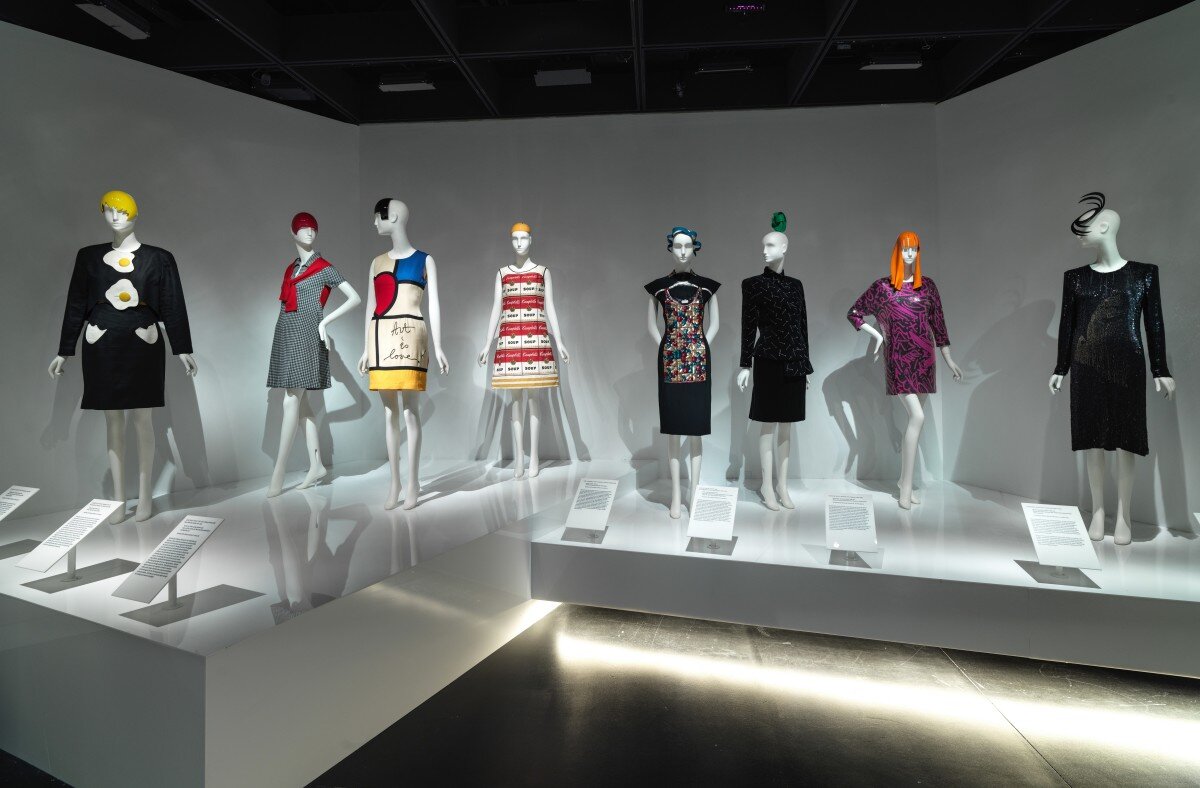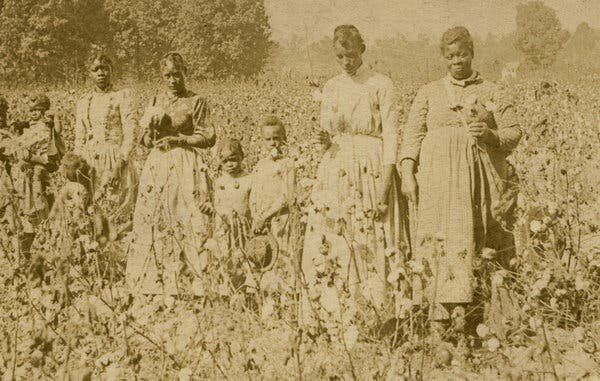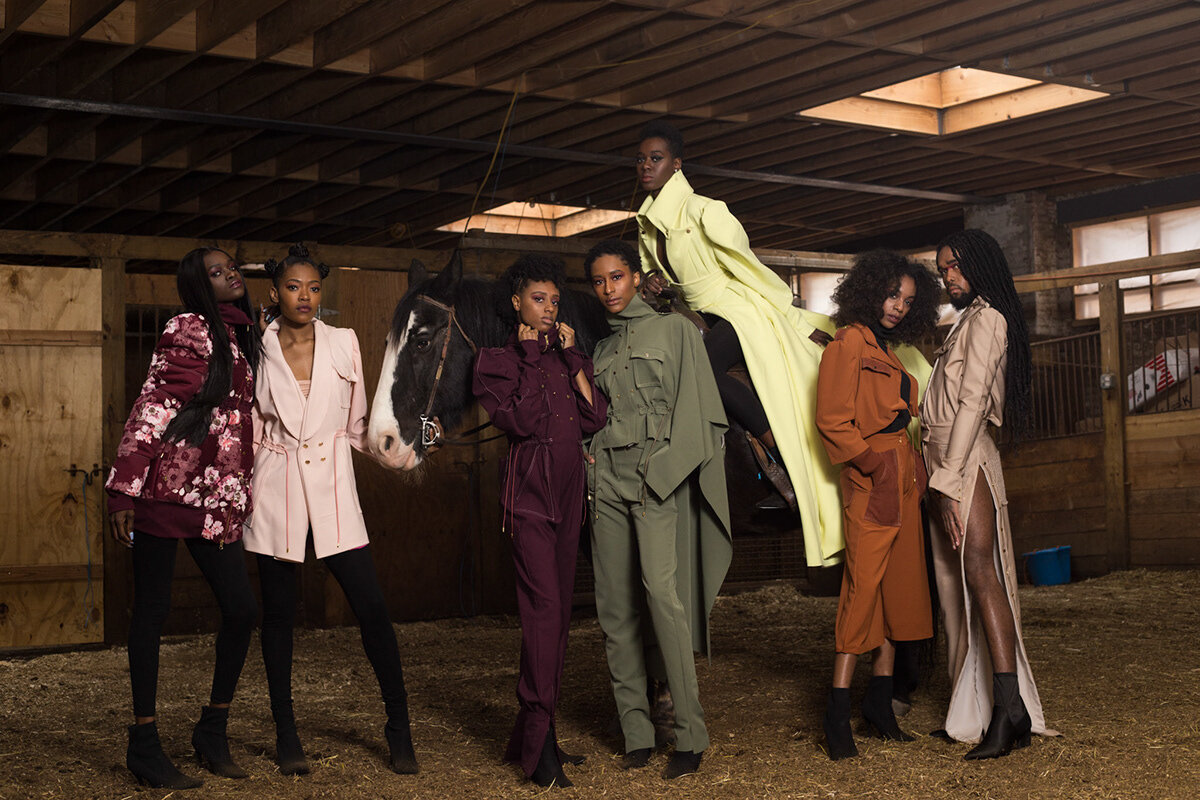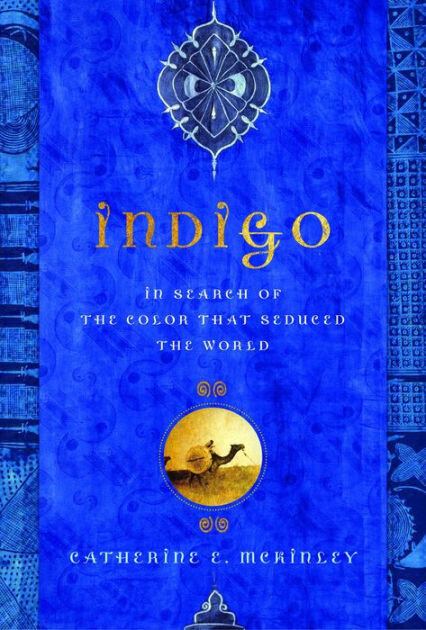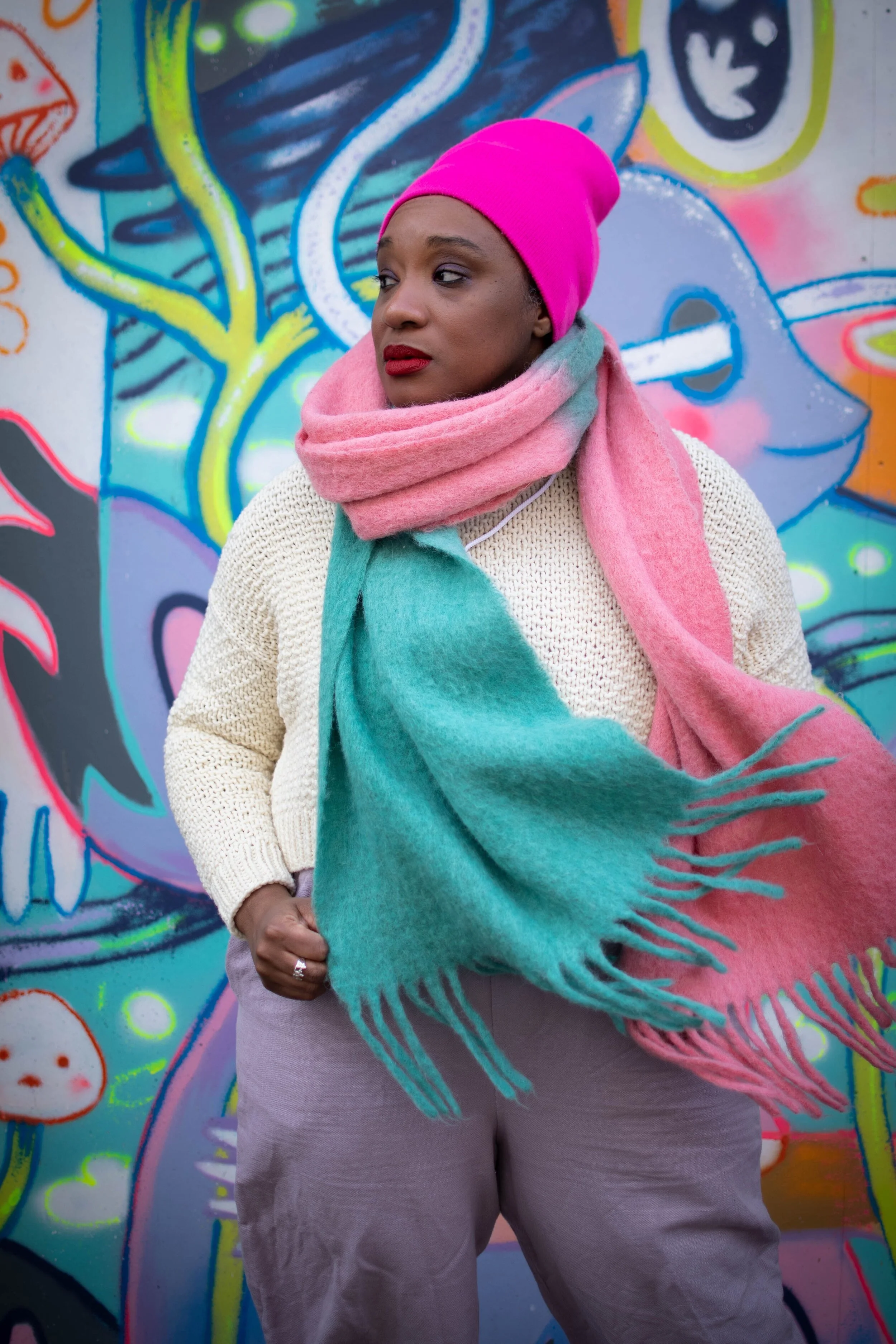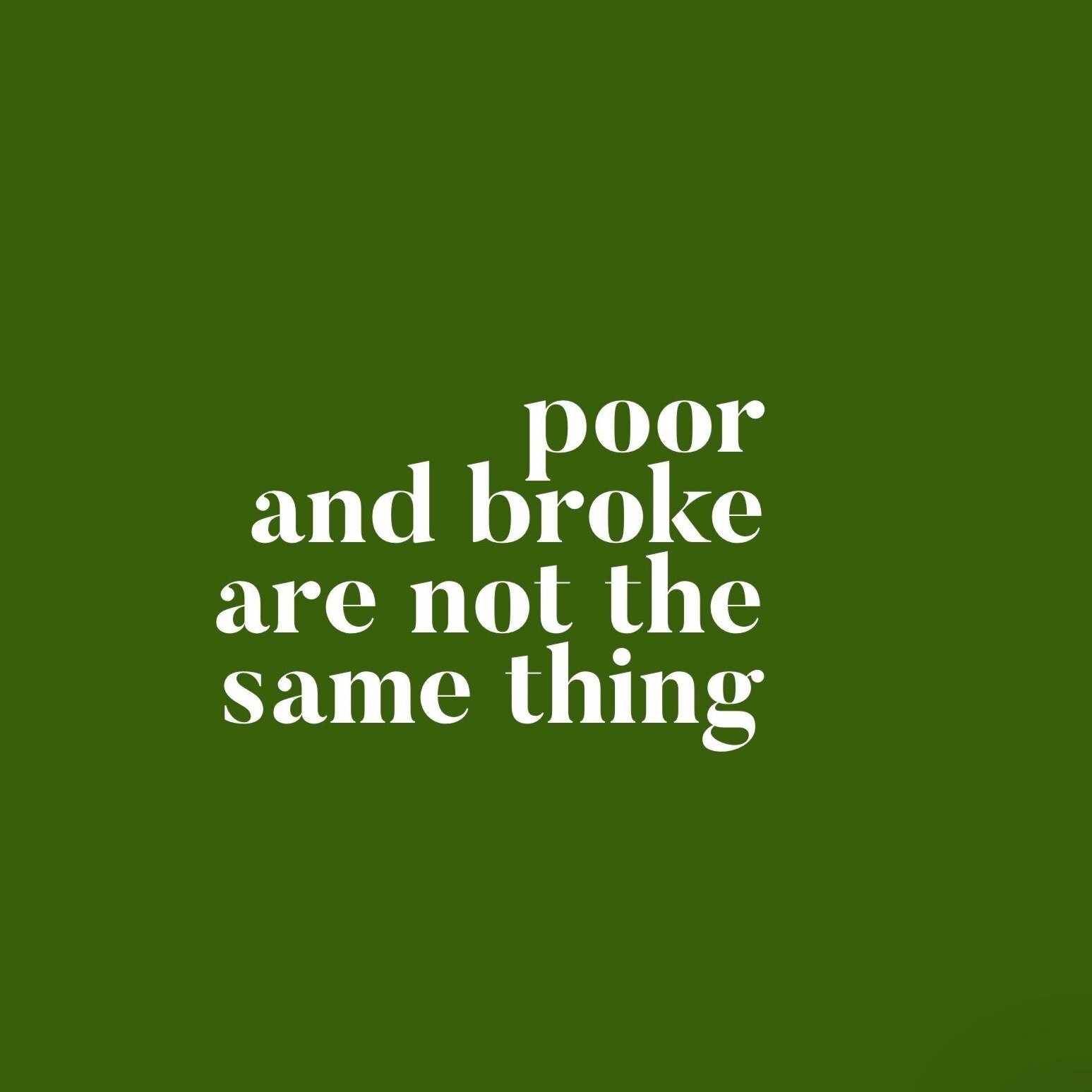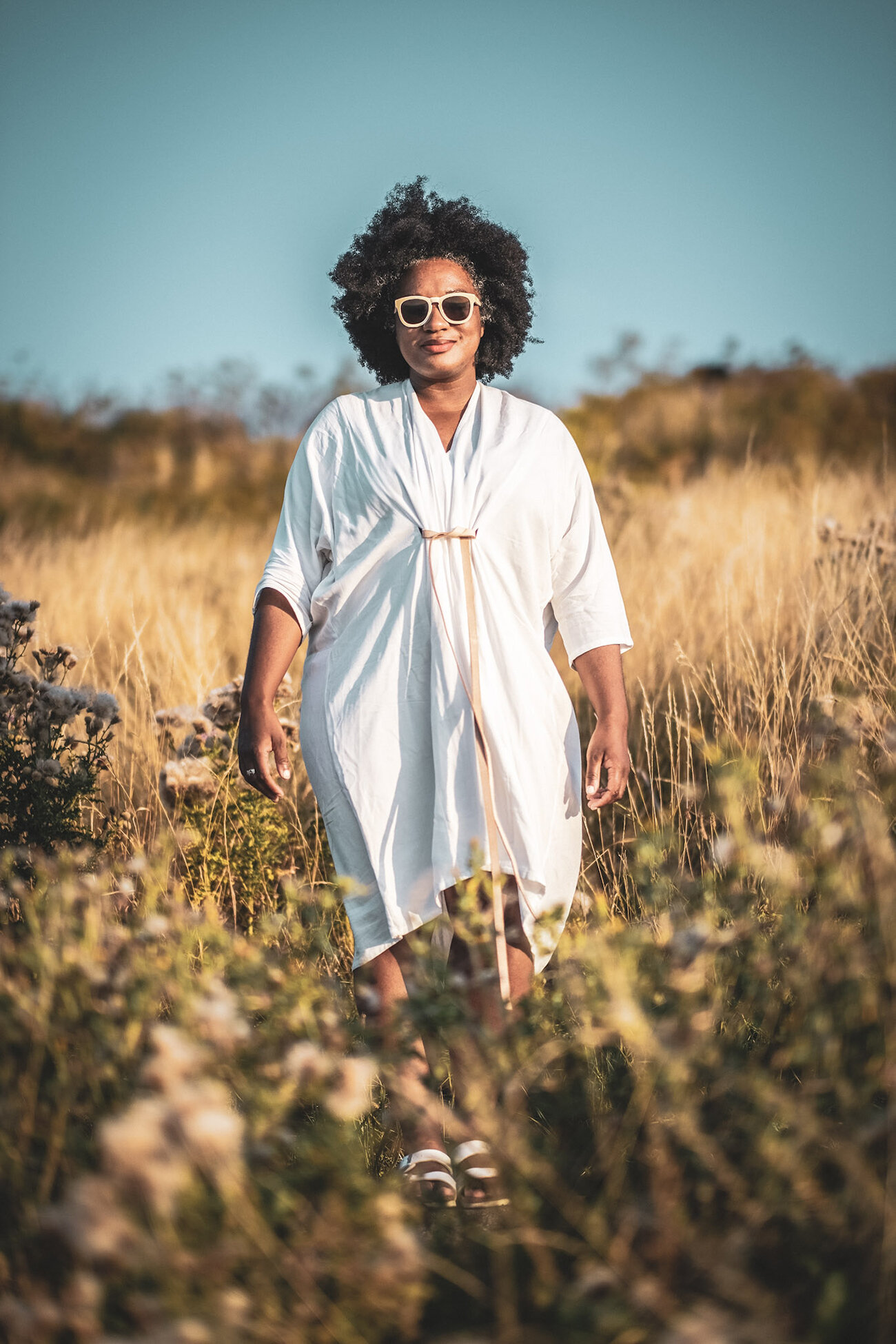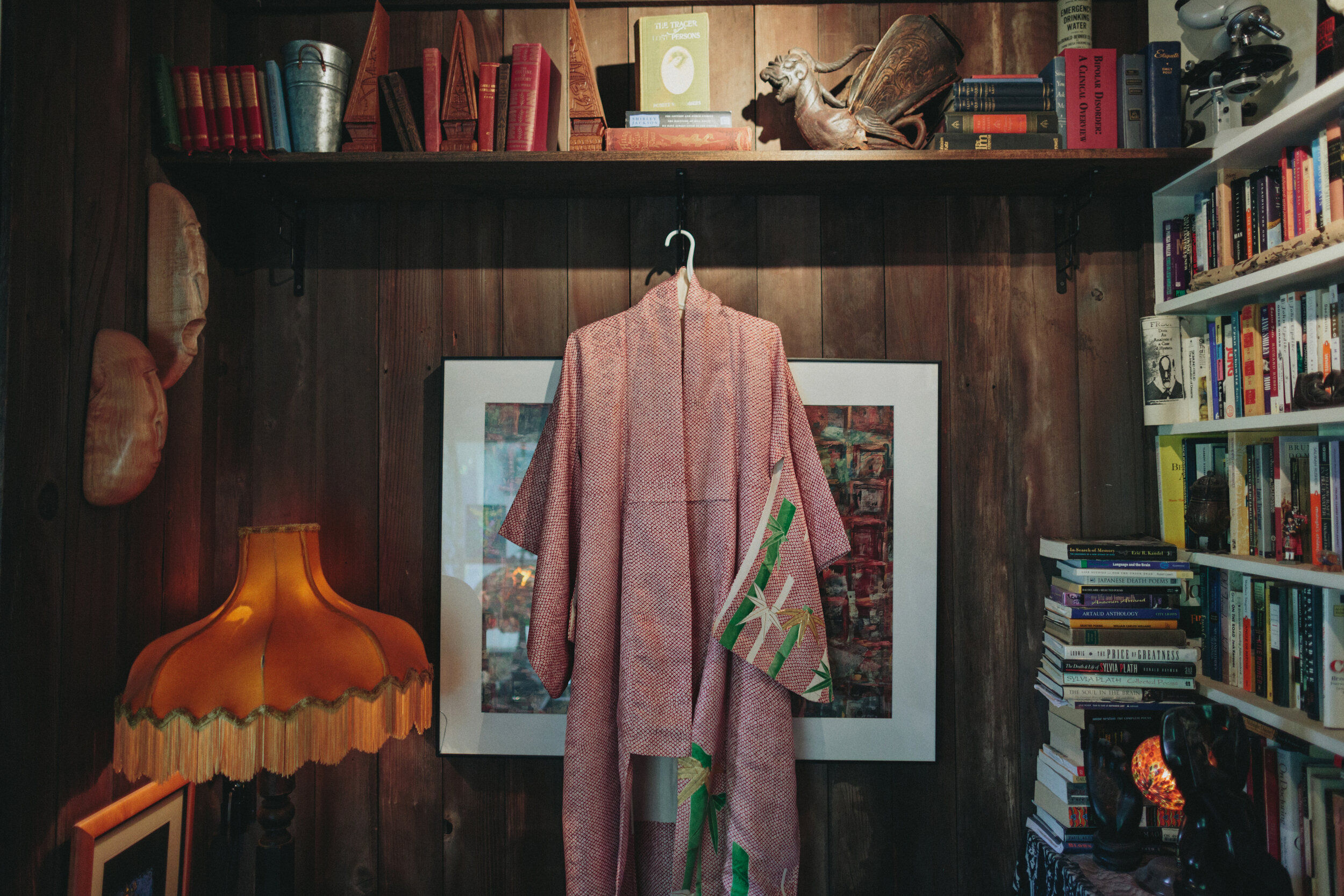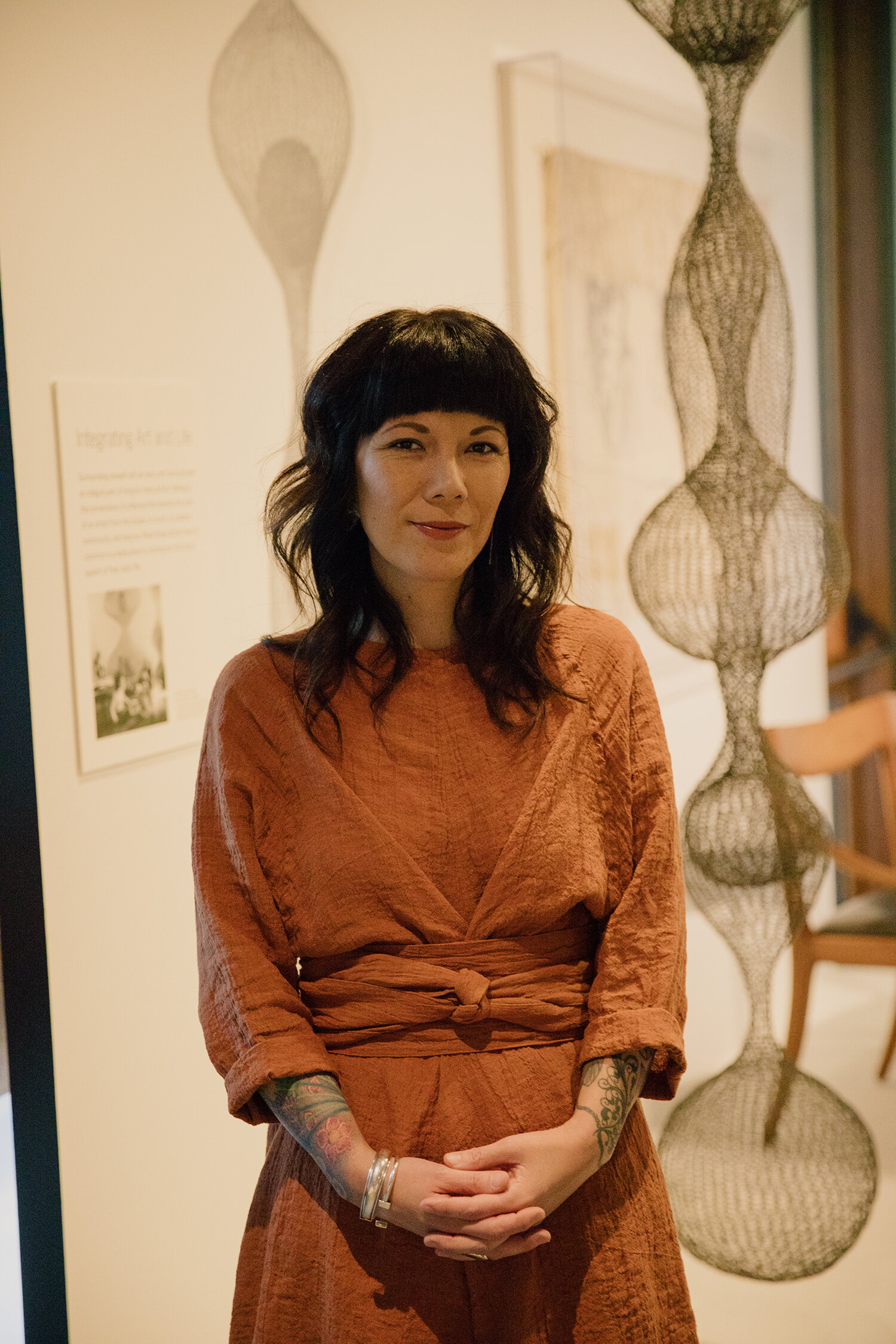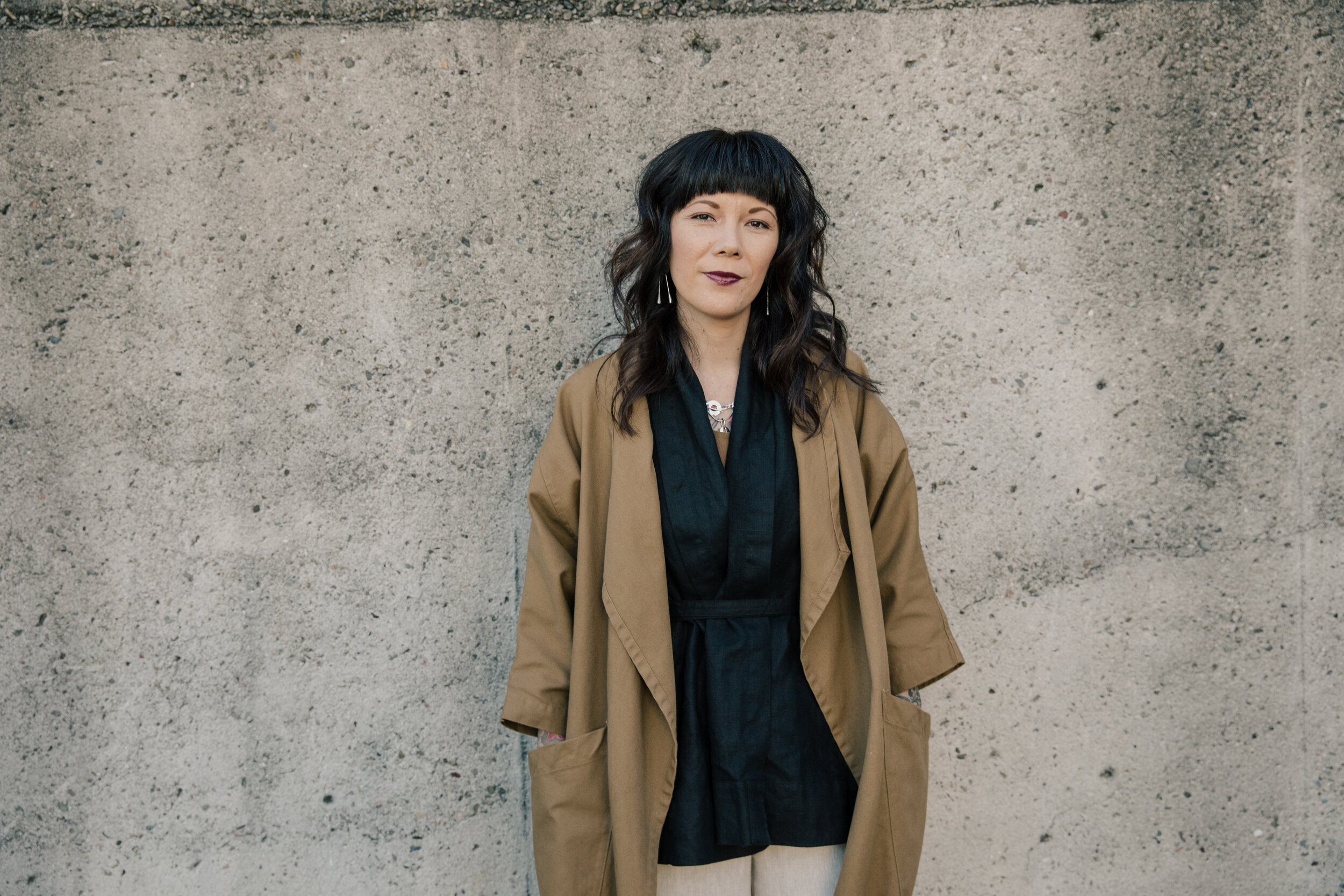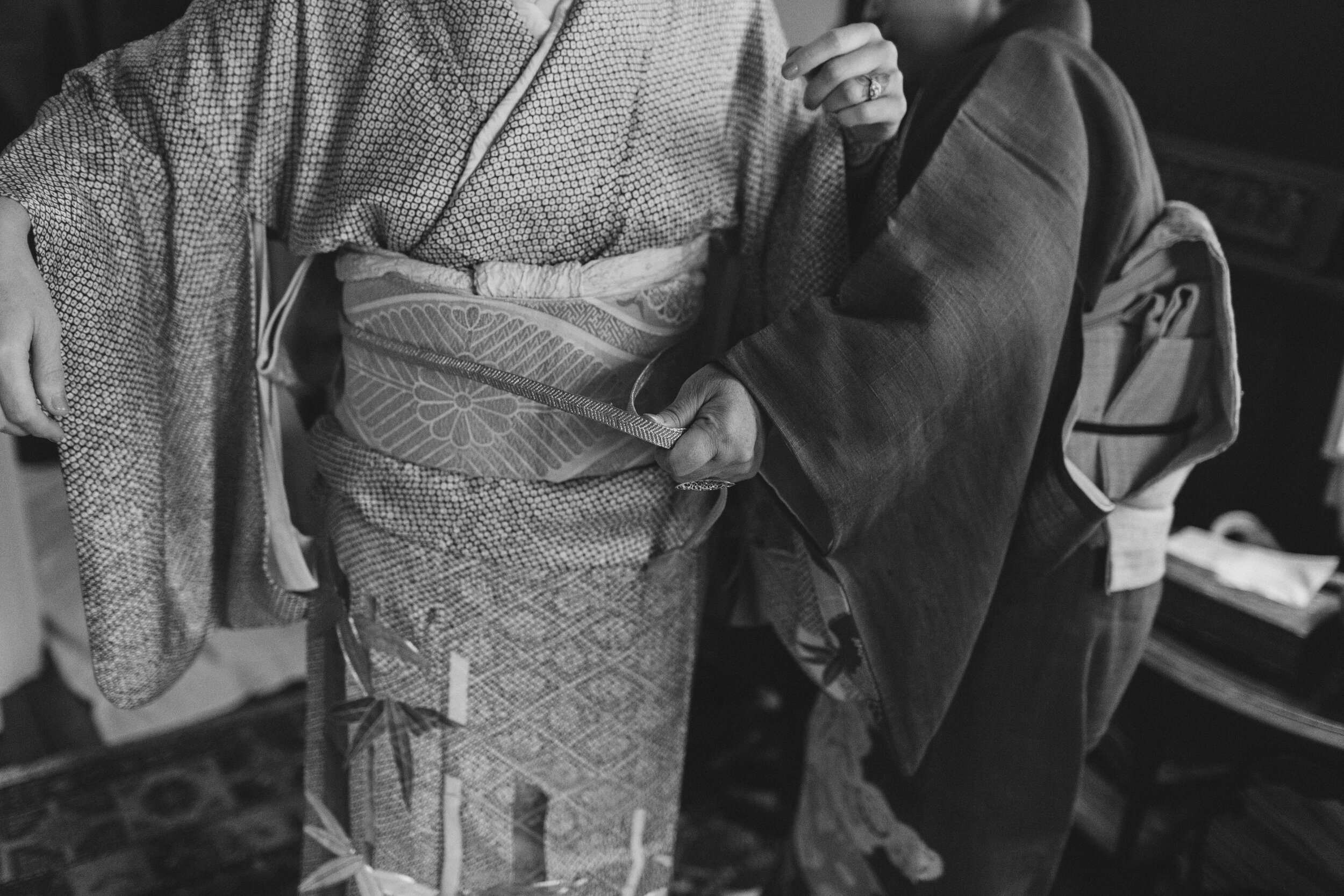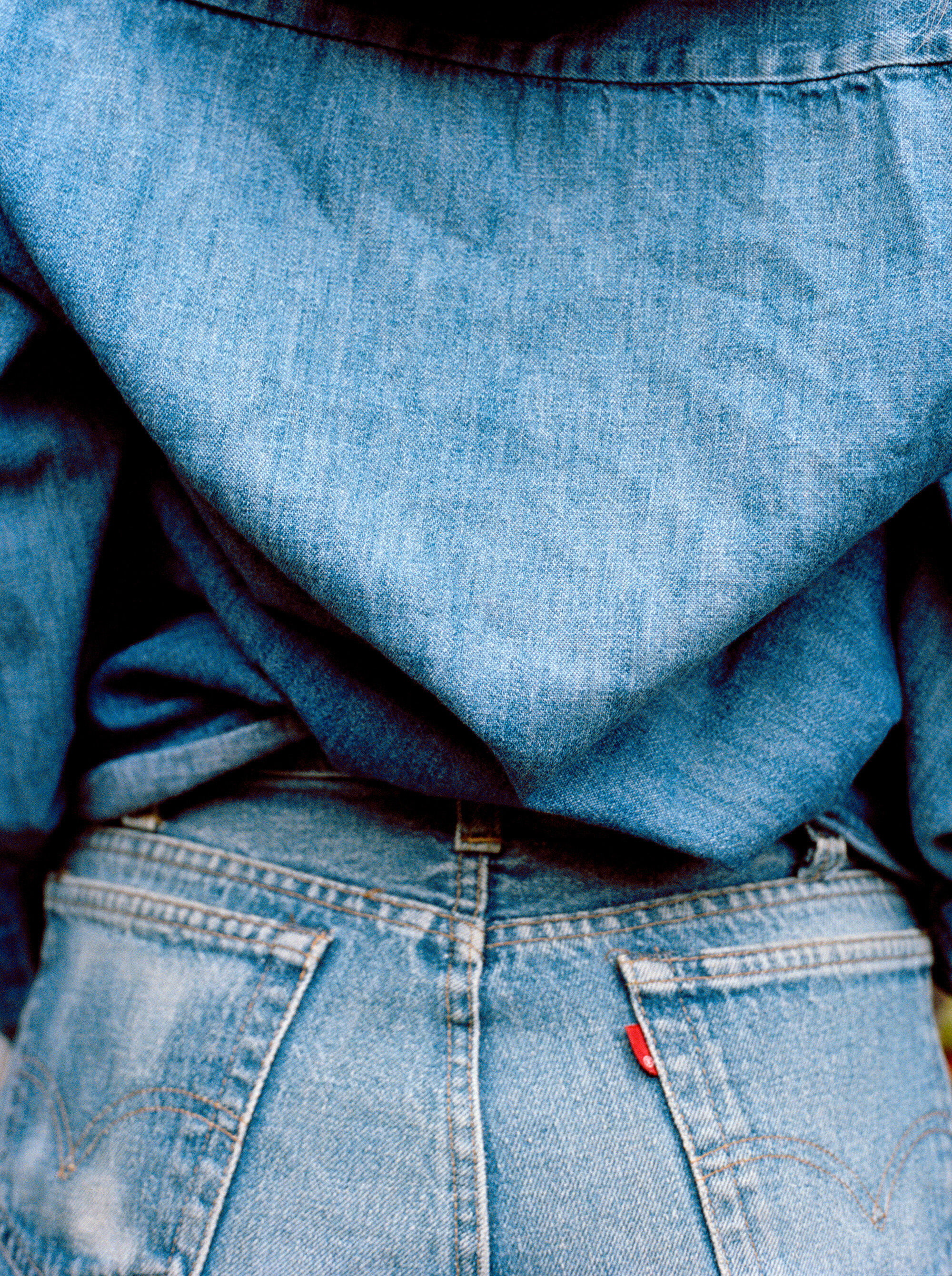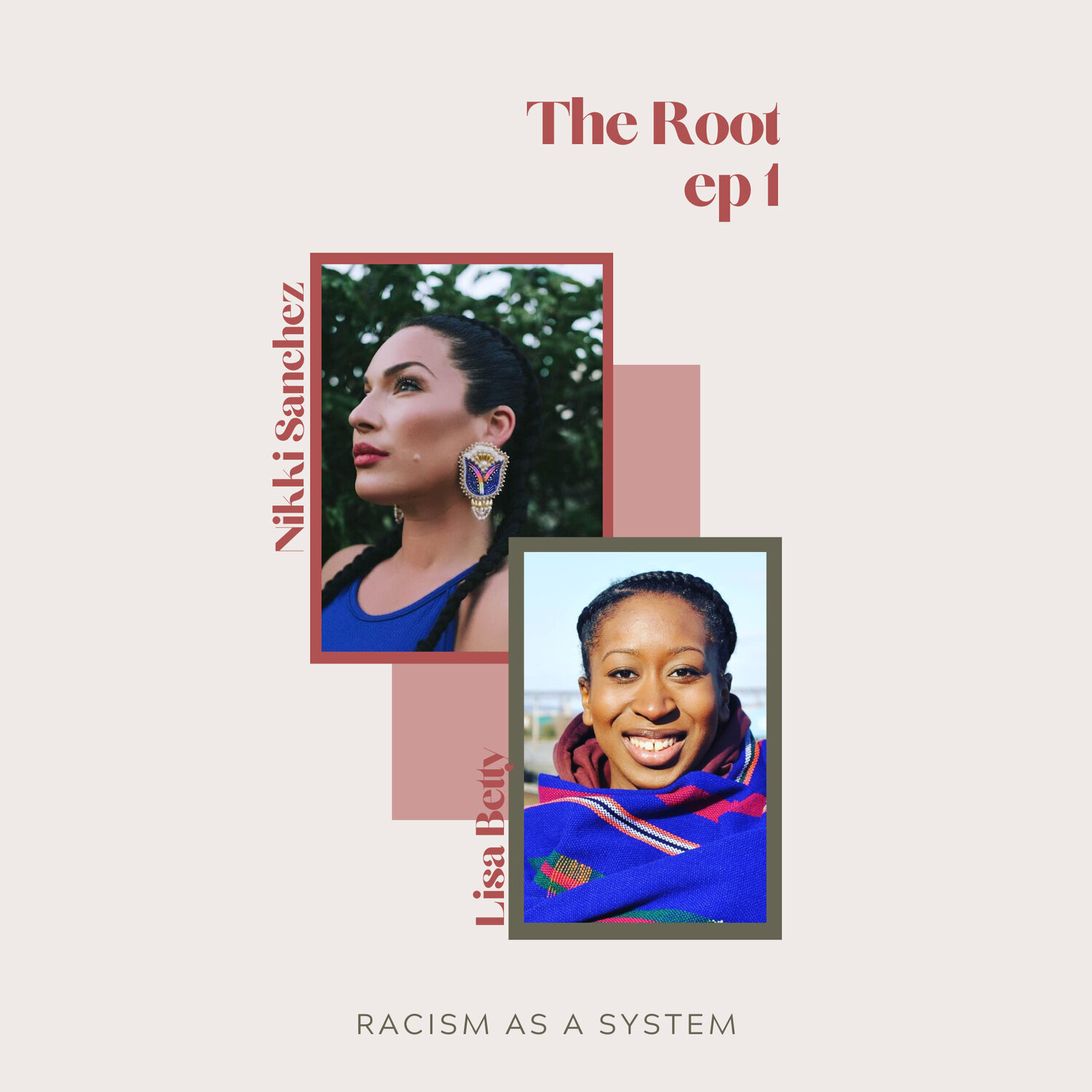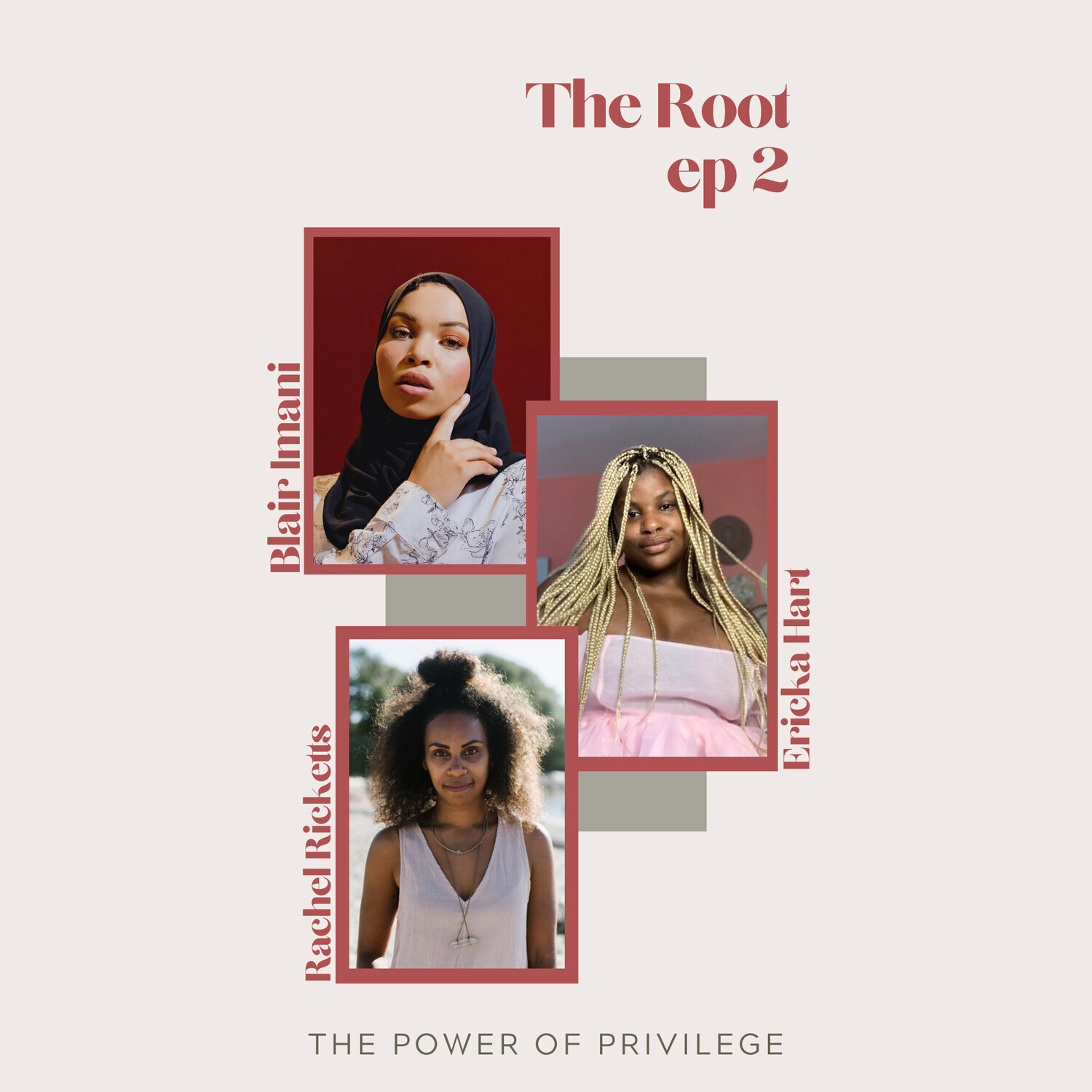THE ROOT | Episode 3 | Racism In The Fashion Industry
The Root Episode 3: Racism in the Fashion Industry is broken down into 2 segments. The first segment focuses on the designer lens in which Dominique Drakeford speaks with sustainable fashion designers Miko Underwood and DJ discussing the creation of the fashion industry and the importance of shifting the white exploitive gaze through historical analysis, Black abundance mindset and cultural responsibility. In the second segment, Dominique Drakeford hones in on the “influencer” lens by speaking with Aja Barber and Emi Ito on the uses of social media as a tool for education, advocacy and solidarity against institutional oppression.
PART 1, THE DESIGNER LENS
DJ
Damian Joel (preferably called D.J.) is a self-taught designer who credits his interest in fashion to years of witnessing his mother sweat over her sewing machine to make ends meet. After years of working in corporate Jamaica as a Marketing and PR executive, D.J. transitioned his career, and became a regular style correspondent on Jamaica’s morning show. He also acted as a Personal Stylist to Olympic gold medallist Shelly-Ann Fraser Pryce. In 2014, D.J. headed to New York, where he has managed to carve out his own space— without formal training — relying merely on his intuitive talent in fashion.
Images below curated by DJ
Ousmane Sembène’s 1966 film La noire de…(Black Girl): A scene in which the protagonist Diouana, a Senegalese immigrant in France is demeaned by her Madame by insisting that Diouana dress like a maid rather than wearing clothes of her own choosing. Here she deliberately and openly attempts to degrade her into a submissive social role through maintaining the status quo of fashion. (Source: 25YearsLatersite.com)
Meme: Twitter reactions to a Black model being cropped from an Adidas swimwear campaign embracing body positivity. (Source: DailyMailUK)
(a) Image: The MET Costume Institute throws an opening soiree for its latest exhibit —a show dedicated to the illustrious sartorial holdings [read: white] of Fashion Collector Sandy Schreier. (Source: Vogue.com) (b) Headline: THE MET'S LATEST FASHION EXHIBIT IS ONE OF ITS MOST IMPORTANT - "In Pursuit of Fashion: The Sandy Schreier Collection" is pulled from one of the most valuable private fashion collections in the world. (Source: Fashionista.com)
Archival image: Women and children in a cotton field in the 1860s. By the Civil War, cotton grown and picked by enslaved workers was America’s most valuable export. (Credit J. H. Aylsworth, via the Smithsonian National Museum of African American History and Culture). The image accompanies an article in the NY Times entitled, The Economy That Slavery Built - In order to understand the brutality of American capitalism, you have to start on the plantation by Nikole Hannah-Jones, produced by Annie Brown, Adizah Eghan and Kelly Prime, with help from Jazmín Aguilera, and edited by Lisa Tobin and Lisa Chow. Published on Friday, August 30, 2019.
Archival image: Portrait of Elizabeth Keckley, circa 1861. Caption: Born into slavery in 1818, Elizabeth Hobbs Keckley (also spelled Keckly) learned to sew from her mother and this skill would eventually bring her freedom and success. She developed into an accomplished seamstress and the income from her dressmaking supported the family that enslaved her. In 1855, she purchased her freedom and that of her son with loans from her clients. After coming to Washington in 1860, she established her own business and developed a clientele of prominent politicians' wives. (Source: Image from Moorland-Springarn Research Center of Howard University, Caption from The White House Historical Society)
Nicholas Daley SS20 Collection. The CSM graduate taps into the multisensory potential of his garments and uses his creative platform to spotlight other Black creatives, thus bringing together the influences his Jamaican father and Scottish mother instilled in him growing up. (Source: i-d.vice.com)
INTRO x Damian Jöel SS20 Campaign
INTRO x Damian Jöel FW19 Campaign
Links to DJ’s work:
MIKO UNDERWOOD
Miko Underwood is an artist, seasoned design director, sustainability practitioner, actionist and the founder of the first sustainable denim brand in Harlem, NY, Oak & Acorn - Only for the Rebelles, a genderless luxury heritage brand. A denim expert, with nearly twenty years of wash & product and brand development, Miko founded BLDG 357, Inc. a boutique multimedia design consultancy with global clients in the U.S., China, Hong Kong, Vietnam, New Zealand & West Africa. Miko is the consulting creative director for We Got Us Now, a nonprofit that focuses on identifying & amplifying the voices of children and young adults impacted by parental incarceration & active voice for those who share her personal story in the fashion community.
Images below curated by Miko Underwood
Indigo: In Search of the Color that Seduced the World by Catherine McKinley, interview on NPR
Liberated Threads by Tanisha Ford
DOWNLOAD journal by Tanisha Ford titled “SNCC Women, Denim, and the Politics of Dress”“Doris Lee Offers The Southern Negro As A Source Of Fashion Inspiration”, published in Life Magazine December 8th, 1941
Links to Miko’s work:
Miko’s brand Oak and Acorn, the first sustainable denim brand in Harlem, NY
The Denim Collective, an educational initiative curated by Miko, that brings to the forefront the Black Community’s contributions to the origins of fashion - beginning with Denim
Part 2, The Influencer Lens
Aja Barber
Aja Barber is a writer, stylist and consultant who lives in London. Aja's work centers around fashion, feminism, sustainability, race, colonization and all the issues that are holding the fashion industry back from being its best self.
Images below curated by Aja Barber
Aja in a vibrant pink hat, pink and turquoise scarf, and cream-colored sweater standing in front of a brightly colored wall
“poor and broke are not the same thing” — from a past Instagram post Aja made where she says, “I find the conversation about ‘the poor’ comes up quite frequently on my page a lot and I find it somewhat misleading in regards to fast fashion and profitability. As a person who once bought fast fashion, I was never poor during my participation. And neither were a lot of the other participants I saw. We really gotta stop blaming poor people for fast fashion as if middle class and wealthy people don’t participate and keep the system alive and extremely profitable.”
“don’t call it radical” — from a past Instagram post Aja made where she says, “Stop calling us #radicals. When you do, all you are doing is sensationalizing the work of activists like myself who ultimately want #peace and #fairness of all of us and there is nothing radical about that idea.”
Aja in a grassy field, wearing a white dress and sunglasses, with the blue sky behind her
Links to follow Aja’s work:
Emi Ito
Emi Ito is a mother and public educator on Chochenyo Ohlone land in the Bay Area. Her Buddhist practice and journey of becoming a mother led her to explore and embrace sustainable fashion. She became outspoken about the cultural appropriation of the kimono as well as the need for wider representation of BIPOC in ethical fashion. She is the founder and co-moderator of Buy From BIPOC, a website and Instagram that celebrates BIPOC makers and creatives with a focus on slow, sustainable, and ethical fashion. Emi is also a Steering Committee member of Japanese Americans for Justice and the Committee Chair for the Families & Kids Committee of Tsuru for Solidarity. Both organizations focus on anti-racist solidarity work to combat anti-Black racism and the incarceration of families by ICE.
Images below curated by Emi Ito
From the “Clothing is... political” campaign that Emi organized in collaboration with Elizabeth Suzann, photo by Zachary Gray
Kimono from Emi’s wedding day, photo by Nirav Patel
From the “Clothing is... political” campaign that Emi organized in collaboration with Elizabeth Suzann, photo by Zachary Gray
From Emi’s wedding day, she is wearing her mother’s kimono, photo by Nirav Patel.
From the “Clothing is... political” campaign that Emi organized in collaboration with Elizabeth Suzann, photo by Zachary Gray
From Emi’s wedding day, “I'm wearing my mother's kimono and my aunt, her sister, is dressing me.” Photo by Nirav Patel
Links to follow Emi’s work:
“An Open Letter to White Makers & Designers Who Are Inspired by the Kimono & Japanese Culture”
“Learning and Unlearning: an interview with Emi Ito on cultural appropriation” in Pom Pom Magazine
“Untangling The Threads Of The Kimono: Japan’s Colonial History & Cultural Reparations In Fashion” on Matter Prints
Coming this Fall, Levi’s® SecondHand — a new way to shop sustainably for well-worn, highly covetable, perfectly imperfect jeans. Because if everybody bought one used item of clothing this year, instead of buying new, it would save 449 million pounds of waste. (source: ThredUp)
LEARN MORE at levi.com/secondhand >
Listen to previous episodes OF The Root
Thanks for listening! Subscribe, download, and leave a review for Conscious Chatter on iTunes if you get the chance.



